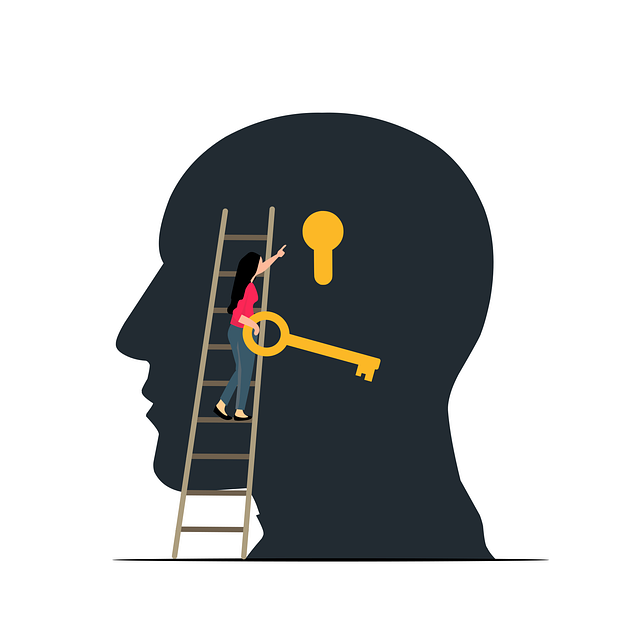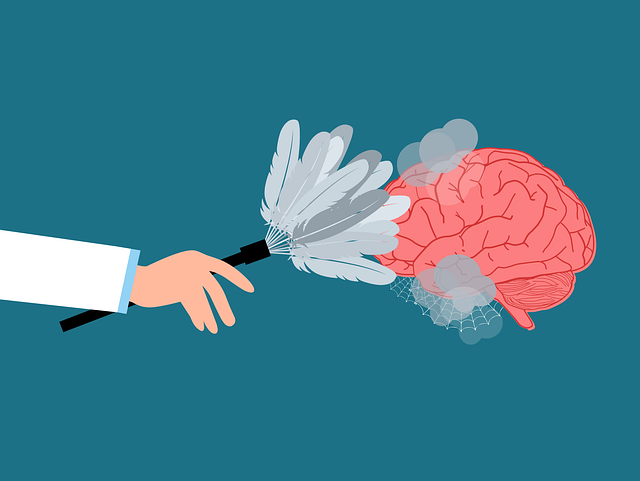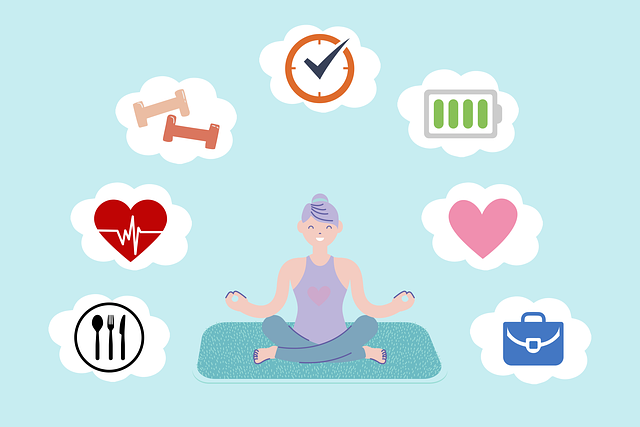Mental wellness is essential for overall well-being, impacting daily life. Therapy for Adults Christian Counseling offers a unique blend of biblical guidance and evidence-based practices for stress management and personal growth. Recognizing personal triggers and implementing self-care routines, tailored with professional help, are key to navigating mental health challenges. Holistic approaches like exercise, meditation, and community connections enhance mental wellness. Incorporating regular self-care activities and therapy sessions into weekly routines promotes resilience and overall well-being, similar to tending to a garden.
“Unwind and embrace a transformative mental wellness self-care routine. In today’s fast-paced world, prioritizing your emotional health is paramount. This article guides you through a holistic approach to well-being, offering insights into understanding mental wellness and its profound impact on daily life.
Explore the benefits of Christian counseling as a powerful tool for self-care, helping adults navigate stress and triggers effectively. Learn strategies to identify personal stressors and discover a multi-faceted self-care strategy tailored to your needs. Finally, master the art of integrating self-care into your weekly routine for enhanced mental resilience.”
- Understanding Mental Wellness and Its Impact on Daily Life
- The Role of Christian Counseling in Self-Care Routines
- Identifying Personal Stressors and Triggers
- Crafting a Multi-Faceted Self-Care Strategy
- Integrating Self-Care into Your Weekly Routine
Understanding Mental Wellness and Its Impact on Daily Life

Mental wellness refers to our emotional, psychological, and social well-being. It influences how we think, feel, and act in daily life, impacting our ability to cope with stress, make choices, and relate to others. When mental wellness is compromised, it can lead to difficulties in functioning at school, work, or home. Symptoms may include persistent feelings of sadness, anxiety, or hopelessness; changes in appetite or sleep patterns; difficulty concentrating; and even thoughts of self-harm.
Recognizing the impact of mental wellness on daily life is crucial. It’s not merely an emotional state but a foundational aspect of overall health. In many cases, therapy for adults, often coupled with Christian counseling, serves as a powerful tool for navigating mental health challenges. This professional support can help individuals develop inner strength and coping skills essential for managing stress and cultivating resilience. Moreover, the Mental Wellness Podcast Series Production offers accessible resources for learning about mental wellness and exploring various therapeutic techniques.
The Role of Christian Counseling in Self-Care Routines

In today’s fast-paced world, integrating mental wellness into daily routines is essential for overall well-being. For those seeking a holistic approach, Christian counseling offers a unique and supportive space to explore and cultivate inner strength. This form of therapy for adults provides a blend of biblical guidance and evidence-based practices, such as compassion cultivation, to help individuals navigate life’s challenges. Through regular sessions with a trained counselor, clients can develop effective communication strategies and learn valuable tools to enhance their mental health.
Christian counseling empowers individuals to build resilience by combining spiritual support with practical self-care techniques. It encourages the development of healthy coping mechanisms, fosters open dialogue, and promotes personal growth. By engaging in compassionate cultivation practices, clients can improve their emotional regulation, leading to better stress management and overall mental wellness. This approach recognizes the interconnectedness of physical, emotional, and spiritual health, ultimately enabling individuals to thrive in all areas of life.
Identifying Personal Stressors and Triggers

Identifying personal stressors and triggers is a crucial step in developing an effective self-care routine for mental wellness. This process involves introspection and recognizing patterns in your thoughts, behaviors, and emotional responses. Every individual has unique triggers that can set off feelings of anxiety or depression, such as certain environments, relationships, or even specific times of the day. By identifying these triggers, you gain valuable insights into what causes stress and how to manage it. For example, someone might realize that they feel overwhelmed by their to-do list in the evening, leading them to implement calming activities before bed to reduce anxiety.
Christian counseling and therapy for adults can provide guidance in this area. Mental health professionals can assist individuals in conducting a risk assessment for mental health, taking into account personal vulnerabilities and potential stressors. Additionally, cultural sensitivity in mental healthcare practice is essential as it allows for a comprehensive understanding of an individual’s background and beliefs, which can influence their stress responses. Burnout prevention is also a key consideration; self-care routines should include strategies to maintain work-life balance and prevent emotional exhaustion.
Crafting a Multi-Faceted Self-Care Strategy

Developing a robust mental wellness self-care routine involves crafting a multi-faceted strategy tailored to individual needs. It’s not just about finding moments for relaxation but building a supportive ecosystem that nurtures one’s mind, spirit, and emotions. This might include incorporating practices such as regular physical activity, mindful meditation, or engaging in creative pursuits. Therapy for Adults, including Christian Counseling, plays a pivotal role in this process by offering professional guidance tailored to address specific challenges, including trauma support services.
A well-rounded approach considers not only personal growth and stress reduction but also the integration of community outreach program implementations that foster connections and provide social support. By combining these elements, individuals can effectively manage their moods, build resilience, and cultivate a deeper sense of well-being. This comprehensive strategy acknowledges that mental wellness is a journey and that various tools, from therapy to self-reflection, contribute to its enhancement.
Integrating Self-Care into Your Weekly Routine

Incorporating self-care into your weekly routine is a transformative step towards enhancing mental wellness and fostering resilience. It’s akin to tending to a garden; consistent nurturing is necessary for its growth and vibrancy. A structured yet flexible schedule allows for dedicated time to focus on oneself, which is essential in today’s fast-paced world. Start by identifying activities that bring rest and rejuvenation—this could be anything from meditation or yoga to reading or spending time in nature. Consistency is key; aim for regular intervals throughout the week rather than sporadic, intense efforts.
Consider integrating stress reduction methods like therapy for adults or Christian counseling, which offer valuable tools for managing mental health. These practices contribute to a holistic self-care routine, helping you develop resilience and navigate life’s challenges with greater ease. Remember, your weekly routine is a blank canvas; through thoughtful consideration and personal exploration, you can create a powerful program that supports your mental wellness journey.
Incorporating mental wellness self-care routines is essential for maintaining overall well-being. By understanding the impact of mental health on daily life, individuals can better recognize their personal stressors and triggers. Christian counseling offers a unique perspective to address these challenges, providing therapeutic support tailored to one’s faith. A multi-faceted self-care strategy, incorporating various practices into one’s weekly routine, promotes holistic healing. Through dedicated time for reflection, exercise, social connections, and spiritual growth, individuals can enhance their mental resilience and cultivate a more balanced and fulfilling life. Seeking therapy, whether through Christian counseling or other professional services, is a proactive step towards managing stress and improving overall mental wellness.












